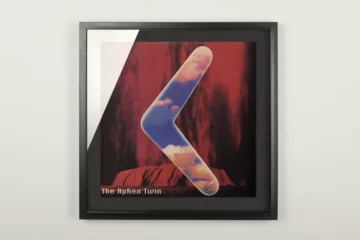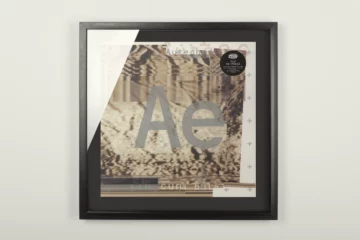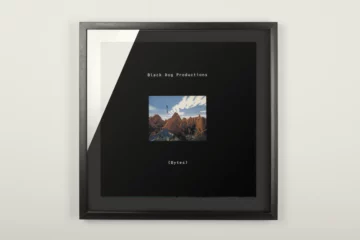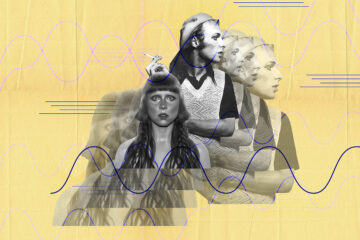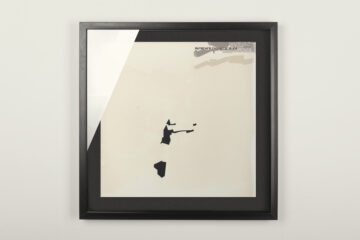The future was still green 30 years ago. People, on the other hand, looked like shop window dummies, smoked joints and, on this point the prediction was definitely correct, listened to records. On the lovingly angular computer-designed cover of the compilation »Artificial Intelligence«, or more precisely »(Artificial Intelligence)«, released in 1992 by British label Warp Records, a shiny metallic figure lolled somewhat stiffly in an armchair in front of a record player, a smattering of pop classics spread out on the floor.

Artificial Intelligence
The covers depicted served as a nod to the inspirations for the sounds that could be found on the album. Kraftwerk’s »Autobahn«, »The Dark Side of the Moon« by Pink Floyd and, quite self-confidently, Warp’s first compilation, »Pioneers of the Hypnotic Groove« from the previous year can be seen. The latter, for all its self-reference, was by no means inappropriate; after all, the selection on »Artificial Intelligence« also signalled a shift in the artists represented.
Electronic Listening Music
In 1991, the line-up still included names like Sweet Exorcist, LFO and Nightmares on Wax, pioneers who, with their singles and albums on Warp, had made the northern English contribution to the bleepification of techno in the rest of the world. Now though, the focus was on other producers, some of whom were already famous, but who appeared here under a different name or were to become more important later under a different one. Above all, they offered different music than we were used to from them. The very first track on The Dice Man essentially came from an »old« acquaintance, Richard D. James, who had long attracted attention in techno circles as Aphex Twin. His track »Polygon Window« comes recommended as a mid-tempo melodic club number, much like the majority of the other contributions.
»Artificial Intelligence« gilt nicht allein als Mutter allen IDMs, es war ebenso der Einstand für eine Albenreihe, in der die neuen Künstler des Labels mit ihrem Stil besonders zur Geltung kommen sollten.
Duo Mike Golding and Steven Rutter are featured under the name Musicology with more sedate music. One would say that it was downtempo a little later, except that terms like that were not common at the time. Once again, its Dutch techno warhorse Jochem Paap alias Speedy J, whose »De-Orbit« perfectly captures the relaxed mood of the cover art. Warp simply called it »electronic listening music« as a customer-friendly handout.
The Mother of all Intelligent Dance Music
A little later, this subdued type of electronic music was to become known by another name, one that was to put the fear of God into some techno fans because of its inflationary use: IDM, intelligent dance music. »Artificial Intelligence« presumably served as a birthing aid for the genre that is still referred to under this title today. It raises the question as to whether the expression was meant to imply that all dance music up to that point should be considered stupid. Mind you, Warp has never used the acronym in question.
Instead, they took a duo on board with Autechre that didn’t stand out too much in the company of the other artists, although their breaks were more angular than those of Ken Downie’s project IAO, which found themselves in close vicinity to them on the record. Autechre’s later path is indicated on »Crystel« with a tempo change in the middle of the track, while on »The Egg« they chose a frothing bass bubbling as the basis for their good seven-minute long second track. Incidentally, the most »conventional« techno was delivered by an artist with the inconspicuous name UP! Behind it was the Canadian Richie Hawtin.
»Artificial Intelligence« is not only considered the mother of all IDM, it was also the début for a series of albums on which the label’s new artists were to be showcased in full with their own individual style. Richard D. James kicked things off in 1993 as Polygon Window, as he called himself afterwards since his track. Next up in the same year was Black Dog Productions, which Ken Downie joined forces with the musicians from the later duo Plaid. Also, Golding and Rutter under the name B12, and Richie Hawtin did the honours as F.U.S.E., initially releasing his album »Dimension Intrusion« on his own label Plus 8, similar to Speedy J’s »Ginger«. Autechre would round off the album series; their »Incunabula« was the beginning of what was probably the biggest »IDM« career at Warp ever. But that is another story.



